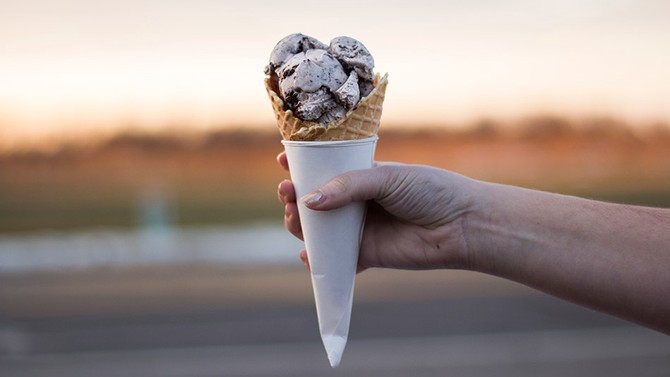6 Foods that Can Wreak Havoc on Your Gut
The wrong ones can leave you bloated, gassy and keeping close tabs on the nearest bathroom, while some can damage your gut and its important microbiome. Time to investigate your plate.
By Emma Haak
Saturated Fat Bombs Like Ice Cream and Meat
Why your gut's not a fan: The fat found in treats like ice cream and animal products like cheeseburgers can increase the growth of potentially harmful gut bacteria. When researchers put mice on a high-milk-fat diet for a study in Nature, it triggered overgrowths of bilophila wadsworthia—a type of bacteria found in all of our stomachs but normally kept in check. The result? Severe inflammation in the colon. It's not because the bacteria are feeding on the milk fat, though—our bodies produce bile in order to digest certain fats, and "the bacteria is using that bile as a fuel source," says study author Suzanne Devkota, MD, a research fellow at Harvard's Joslin Diabetes Center. "It's like adding oxygen to a fire." Another study in Nature found that a high-saturated-fat diet in humans (bacon and eggs for breakfast, ribs and brisket for lunch, salami, prosciutto and cheese for dinner, plus pork rinds for snacks), led to increases in that same bile-loving bacteria.
How to fix it: Limiting your consumption of saturated fats can help keep this bacteria at normal levels. The American Heart Association recommends that healthy individuals get no more than 7 percent of their daily calories from saturated fat (roughly 16 grams of saturated fat on a 2,000-calorie-a-day diet), while people with high cholesterol should cap it at 5 to 6 percent of their daily calories (11 to 13 grams). Just in case you need another reason to adopt a more plant-based diet, consider that subjects on the meat-bonanza meal plan also reported less regularity in their bowel movements while following it.
How to fix it: Limiting your consumption of saturated fats can help keep this bacteria at normal levels. The American Heart Association recommends that healthy individuals get no more than 7 percent of their daily calories from saturated fat (roughly 16 grams of saturated fat on a 2,000-calorie-a-day diet), while people with high cholesterol should cap it at 5 to 6 percent of their daily calories (11 to 13 grams). Just in case you need another reason to adopt a more plant-based diet, consider that subjects on the meat-bonanza meal plan also reported less regularity in their bowel movements while following it.
Published 07/15/2015


